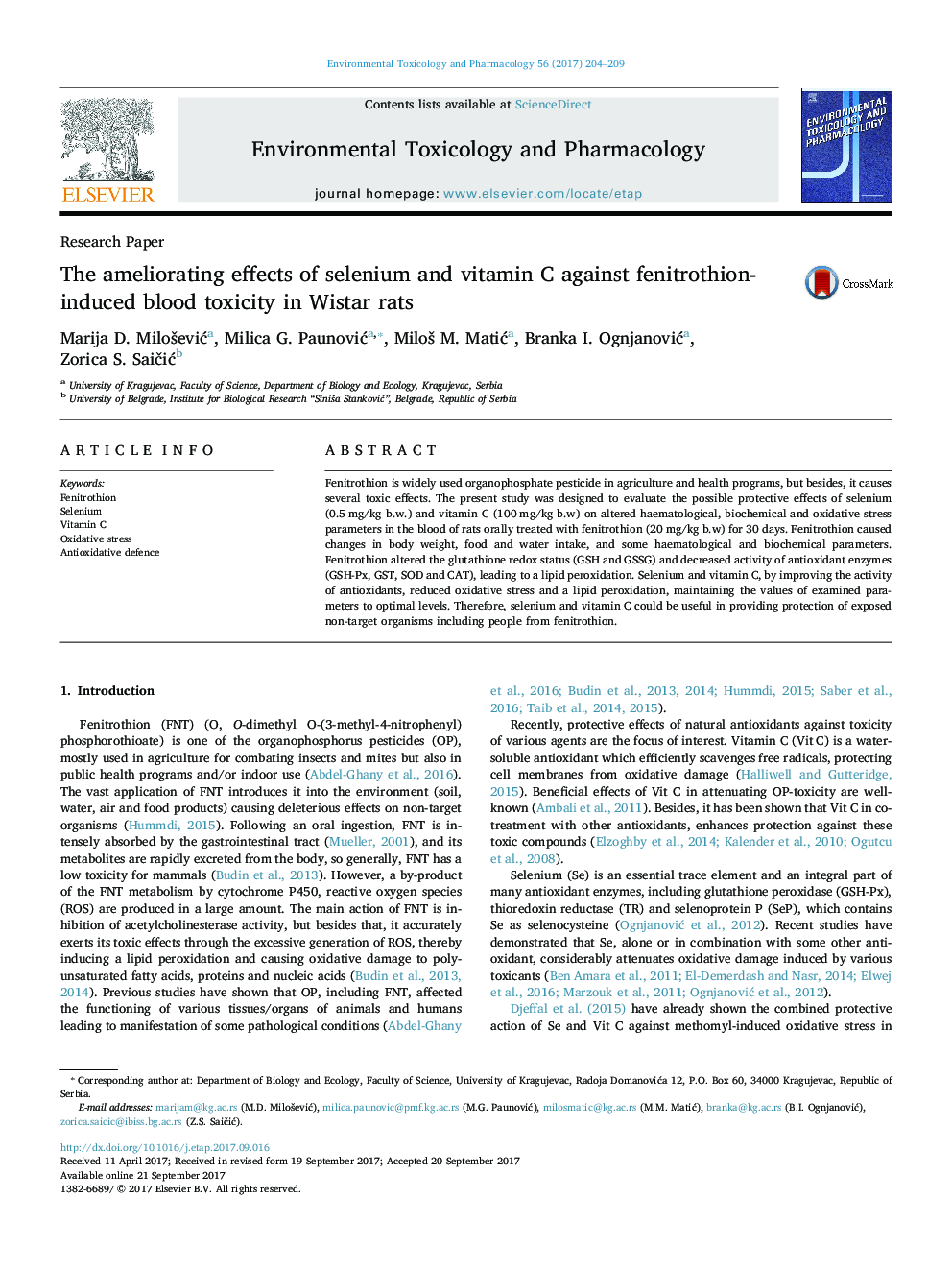| Article ID | Journal | Published Year | Pages | File Type |
|---|---|---|---|---|
| 5559644 | Environmental Toxicology and Pharmacology | 2017 | 6 Pages |
â¢Oxidative stress is involved in fenitrothion (FNT) haematotoxicity.â¢FNT reduced the efficiency of the antioxidant defense system.â¢Selenium and vitamin C lessened FNT toxicity via the antioxidative mechanism.â¢Thus, selenium and vitamin C exhibited the protective effect against FNT toxicity.
Fenitrothion is widely used organophosphate pesticide in agriculture and health programs, but besides, it causes several toxic effects. The present study was designed to evaluate the possible protective effects of selenium (0.5Â mg/kg b.w.) and vitamin C (100Â mg/kg b.w) on altered haematological, biochemical and oxidative stress parameters in the blood of rats orally treated with fenitrothion (20Â mg/kg b.w) for 30Â days. Fenitrothion caused changes in body weight, food and water intake, and some haematological and biochemical parameters. Fenitrothion altered the glutathione redox status (GSH and GSSG) and decreased activity of antioxidant enzymes (GSH-Px, GST, SOD and CAT), leading to a lipid peroxidation. Selenium and vitamin C, by improving the activity of antioxidants, reduced oxidative stress and a lipid peroxidation, maintaining the values of examined parameters to optimal levels. Therefore, selenium and vitamin C could be useful in providing protection of exposed non-target organisms including people from fenitrothion.
Graphical abstractDownload high-res image (131KB)Download full-size image
